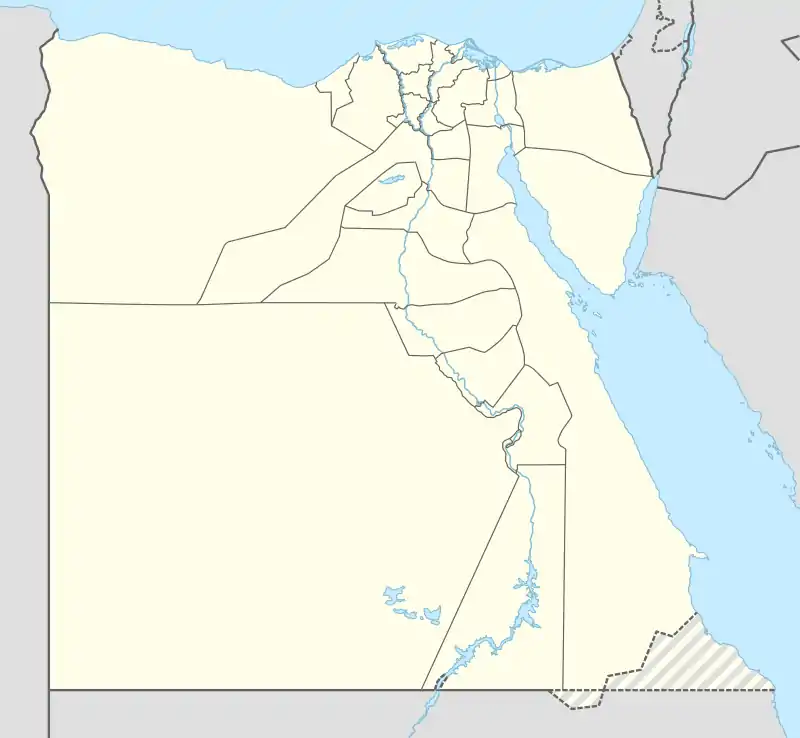KV42
Tomb KV42 is an ancient Egyptian tomb located in the Valley of the Kings in Egypt. It was constructed for Hatshepsut-Meryetre, the wife of Thutmose III, but she was not buried in the tomb. It was reused by Sennefer, a mayor of Thebes during the reign of Amenhotep II, and by several members of his family.[1] The tomb has a cartouche-shaped burial chamber, like other early Eighteenth Dynasty tombs.
| KV42 | |||
|---|---|---|---|
| Burial site of Hatshepsut-Meryetre | |||
 KV42 | |||
| Coordinates | 25°44′17.1″N 32°36′02.6″E | ||
| Location | East Valley of the Kings | ||
| Discovered | 9 December 1900? | ||
| Excavated by | Victor Loret Howard Carter | ||
Construction and early use of the tomb
There is no agreement on the original owner of the tomb. The unfinished quartzite sarcophagus is seen as an indication that the tomb may have at some point been intended for Thutmose II.[2] The discovery of foundation deposits point to the intended owner being Queen Merytre-Hatshepsut. If the tomb ever held the body of Thutmose II, it would have been usurped from the Queen.[3]
Sennefer and Senetnay
KV42 has been associated with the burials of Sennefer and his wife Senetnay since Howard Carter reported the finds of a complete set of canopic jars belonging to Senetnay in 1901. Lids of other canopic jars depicting a bearded man were thought to belong to Sennefer. Further items belonging to a royal ornament named Baketre. [2]
Roehrig proposed that Senetnay was buried elsewhere and re-interred in KV42, possibly as late as the 21st Dynasty.[2]
References
- "KV 42 (Hatshepsut-Meryet-Ra)". Archived from the original on 2016-01-01. Retrieved 2007-06-20.
- M. Eaton-Krauss, The Fate of Sennefer and Senetnay at Karnak Temple and in the Valley of the Kings, The Journal of Egyptian Archaeology, Vol. 85 (1999), pp. 113-129, Stable URL: https://www.jstor.org/stable/3822430
- René Preys, Les tombes non-royales de la Vallée des Rois, Studien zur Altägyptischen Kultur, Bd. 40 (2011), pp. 315-338, Stable URL: https://www.jstor.org/stable/41812322